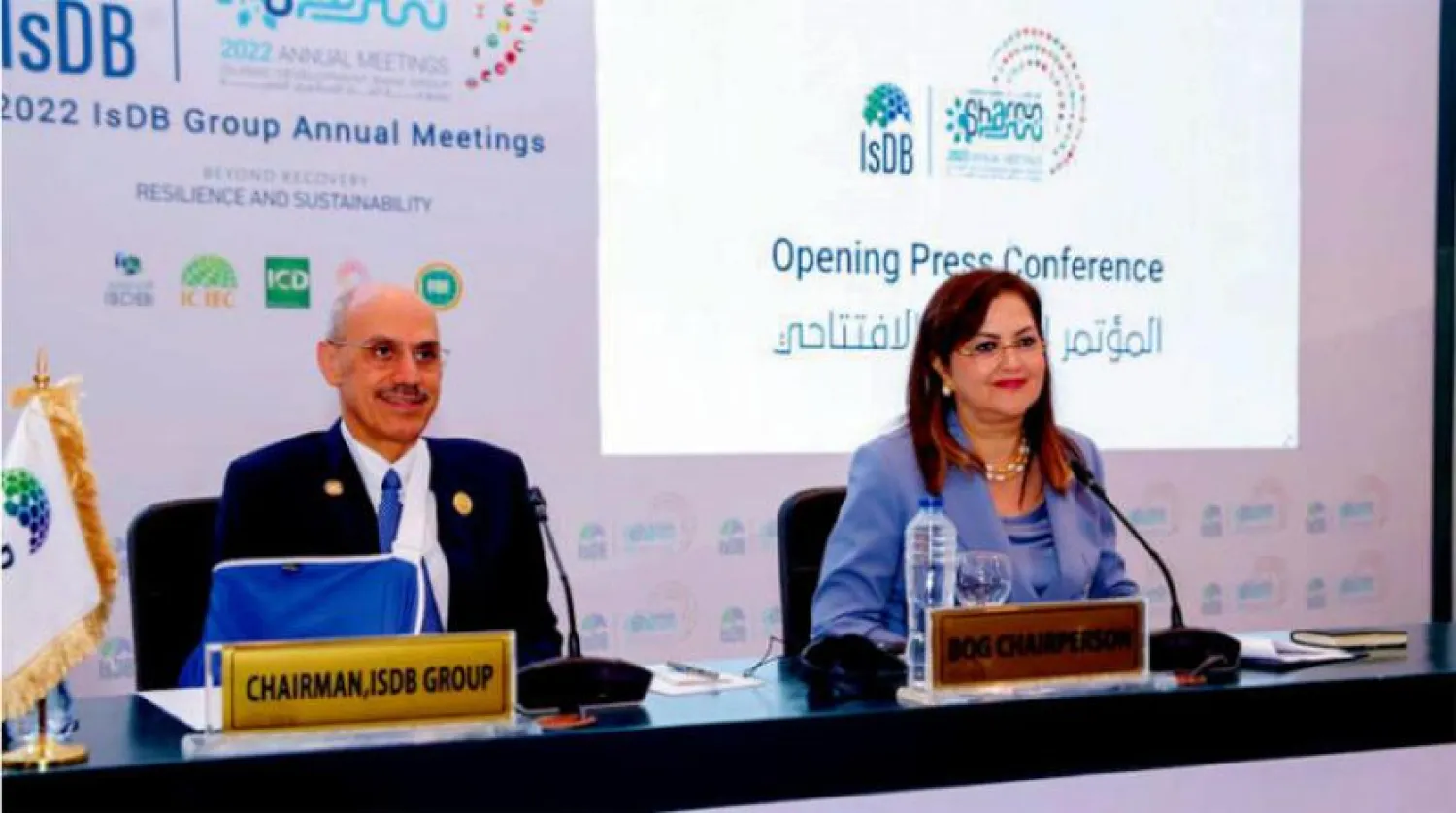Dr. Muhammad bin Sulaiman Al-Jasser, Chairman of the Board of Directors of the Islamic Development Bank (IsDB), said that the group was currently focusing on green infrastructure projects and human capital development, especially in light of climate challenges.
In a press conference held on Thursday to launch the three-day activities of the IsDB in Sharm El-Sheikh, Al-Jasser said the group, which has so far provided funds amounting to USD 162 billion to 57 member countries, will pump the sixth increase in its capital by about USD 7.5 billion, bringing its capital to USD 77.5 billion.
He noted that the funds would be used to support many projects submitted by the group’s member states.
Al-Jasser pointed to the group’s strategy in community development operations, saying: “The Bank Group has taken a number of measures so that the upcoming projects and partnerships are more compatible with the Bank’s strategy, with a focus on combating poverty and protecting the environment, as well as increasing infrastructure projects and human capital development…”
He revealed that the bank has approved projects worth USD 1.6 billion in December, with the increasing need to inject new investments, adding that by the end of 2022, the bank’s lending value would reach USD 5 billion.
The IsDB continues to cooperate with its global partners, including the multilateral development banks, the Arab Coordination Group and the International Fund for Agricultural Development (IFAD), along with other partners to mobilize new resources, Al-Jasser underlined.
He also affirmed IsDB’s full commitment and continued support to member states to confront development challenges and put their economies back on the right track.
In his speech at the 16th IsDB Global Forum on Islamic Finance, on the sidelines of the group’s meetings on Thursday, Al-Jasser noted that the economic crisis that resulted from Covid-19 pandemic has increased poverty rates and inequality of opportunities worldwide.
He emphasized that more than half a billion people around the world have been pushed into poverty during the pandemic.
“The pandemic prompted us to increase our efforts, and we have already studied optimal cooperation with member states to reduce poverty. We have also expanded the partnership with the Oxford Initiative and presented an integrated program with more development projects,” he said.
Speaking at the same conference, Egyptian Minister of Planning, Hala Al-Saeed, said her country was one of the largest contributors to the bank’s capital.
Saeed noted that Egypt had a growing cooperation portfolio with the IsDB, which amounted to around USD 17 billion (until the end of March 2022).
The portfolio includes 367 projects, 303 of which have already been completed at a total cost of more than USD 10.5 billion.









